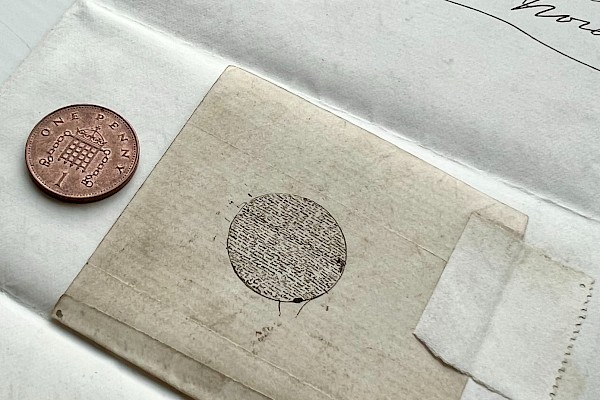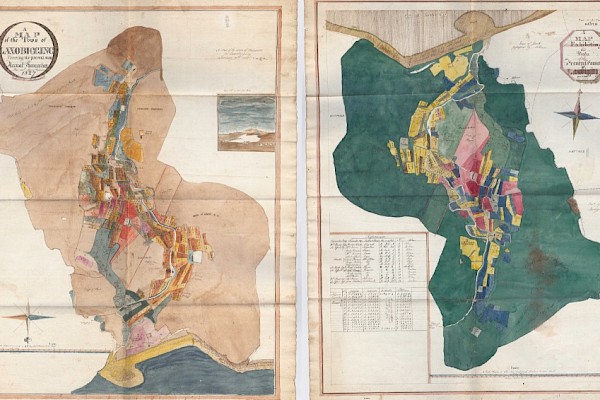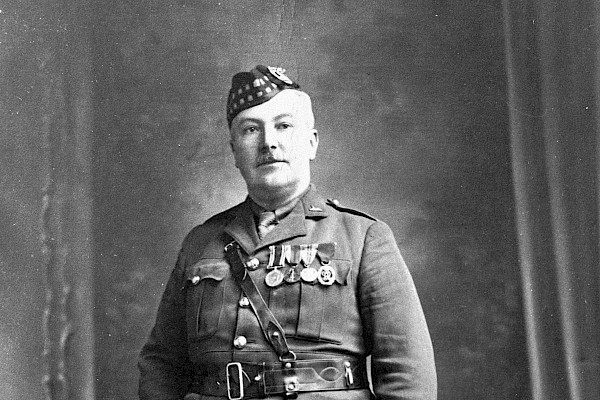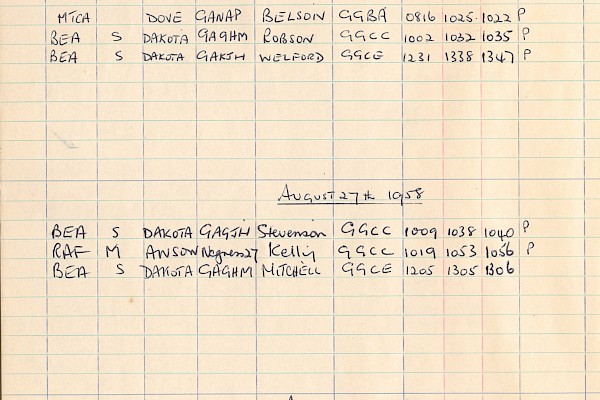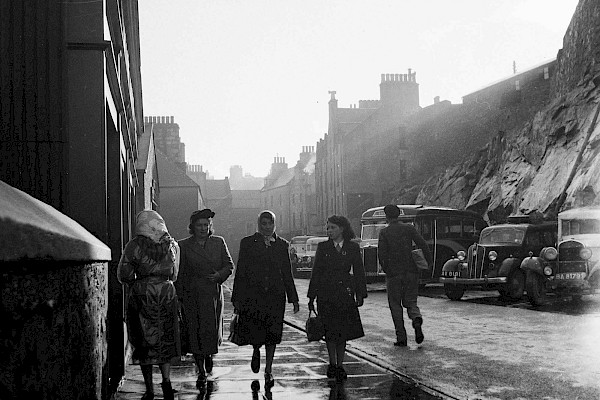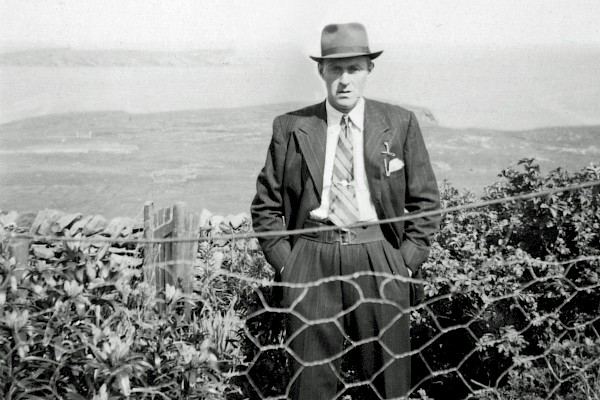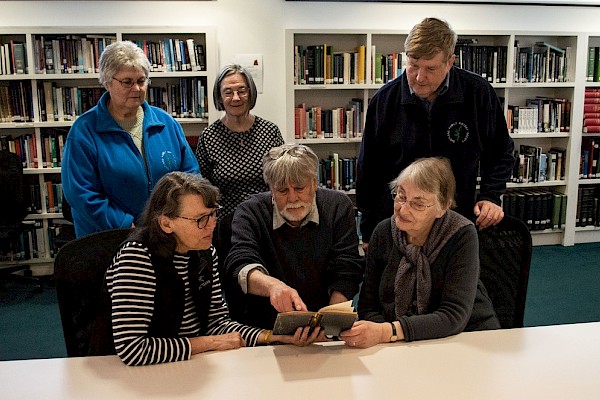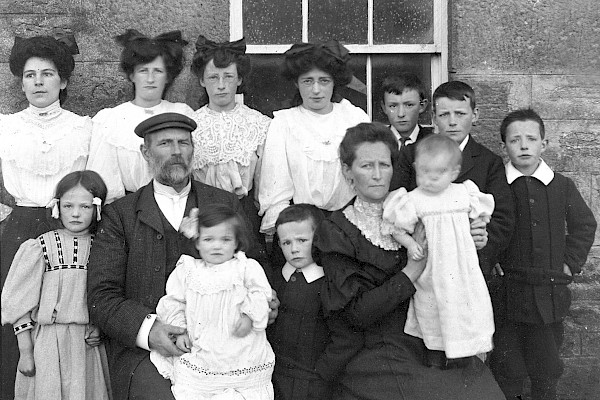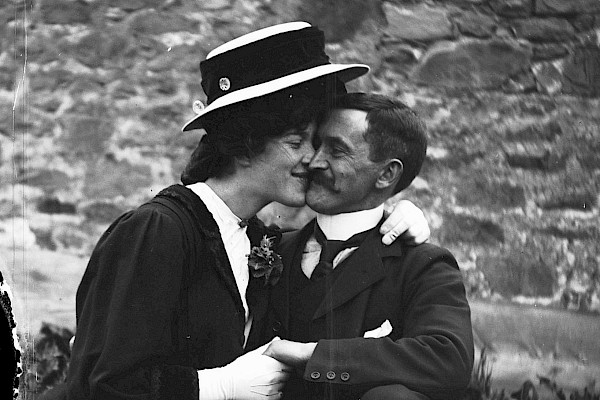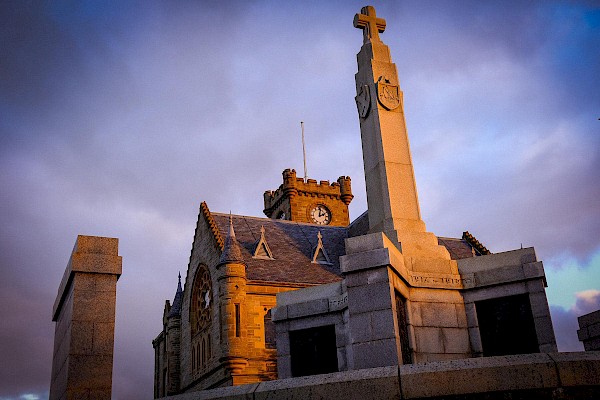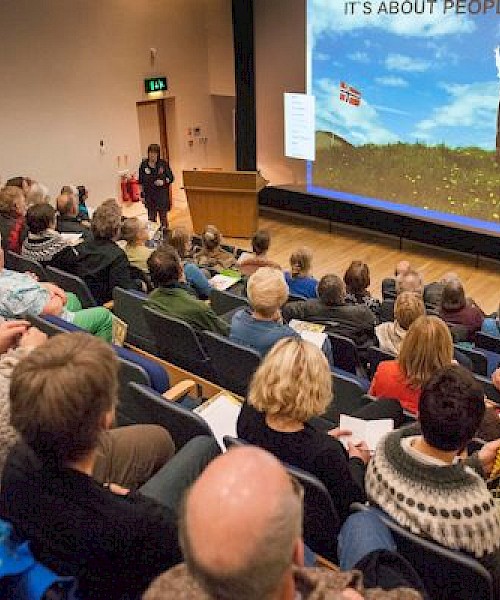Shetland Footballer - James Hunter Thomson
James Hunter Thomson came from Deepdale (born 1884). There isn’t much that comes from Deepdale now. Uninhabited lang syne, you get there by a steep walk up from Maywick, or a long one from Channerwick. There’s some building remains, a fine view of Havera from the vee shape of the valley where the Burn of Deepdale pours out to the west, some birds, and sometimes a bonxie on a low approach. No human habitation visible, and a fine sense of peaceful isolation.
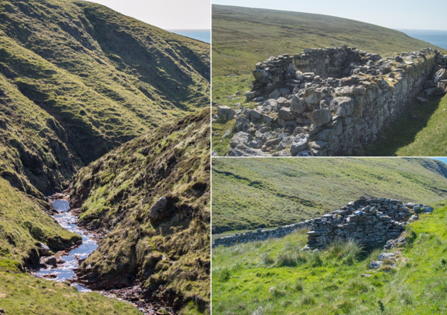
Deepdale in June 2020
The Thomson family came from Weisdale, and didn’t stay long in Deepdale, moving on to run a shop at Maryland in the Ness. The shop didn’t go well, and in June 1887 there was a roup at Maryland under a bankruptcy proceeding. It looks like the family went to Edinburgh shortly after and they are in Gorgie Road, in 1891. The young James H. started to access the different kind of future that Scottish urban places offered, and the working man’s game – football.
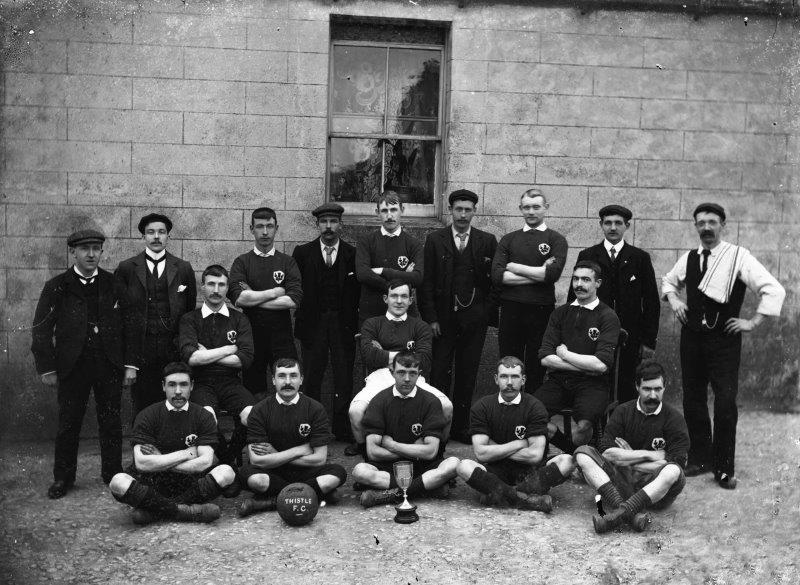
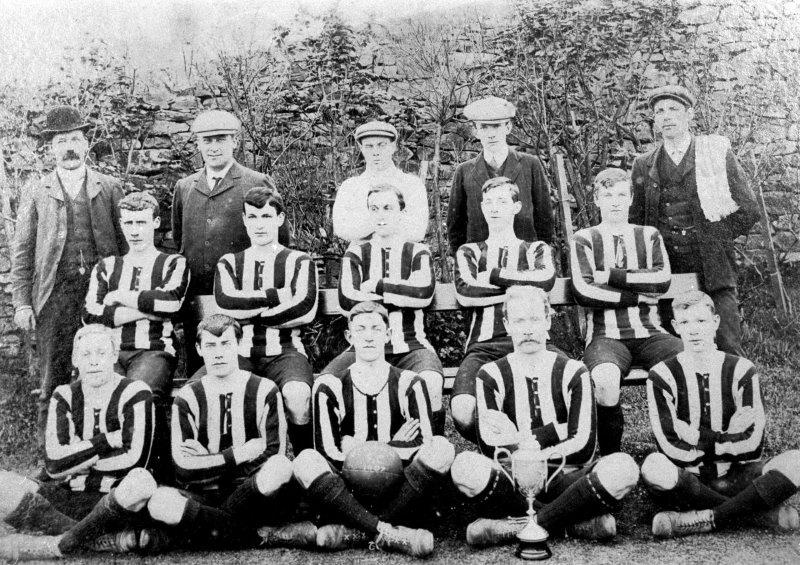
The Shetland News, April 27, 1907, noted him as a right back for at Portsmouth FC. He’d played for other teams in Scotland – Leith Athletic, Paisley Abercorn, and Hearts. The late nineteenth century saw Scottish footballers in much demand in England. The Scotch Professors brought with them the effective team game developed in the hothouse of industrial Scotland, emphasising passing. James was part of the flow that continued on after that.
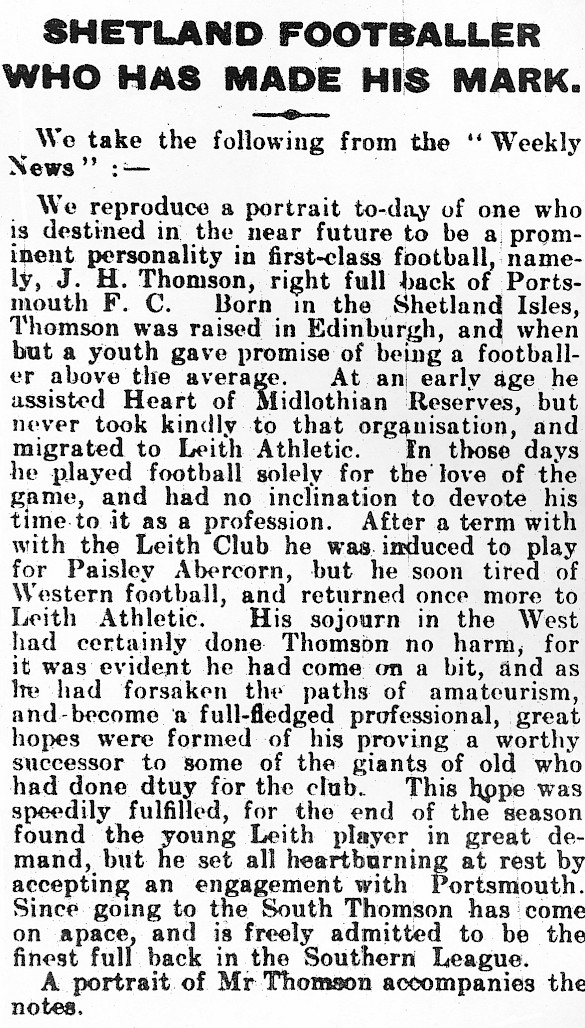
He wasn’t the only Thomson with Pompey, his brother Alfred was there for a time. The late John Graham, a Thomson family relative, said Alfred went on to become a sports organiser for McVities. James, however, had a full career in professional football. He transferred to Coventry in 1911, then moved to Bury, near Manchester, in 1913. He spent the war years as an engineer, playing when there was an opportunity.
After the war he was back at Portsmouth for a spell, but got the assistant manager’s job at Bury in 1922. He was in the right position when a bribery scandal caused his boss to resign. From then to 1927 Bury had a good run, being fifth from the top of the first division in 1924/25 season. Domestically, James’ wife began to build up a successful millinery business. The footballing success came to an end in February 1927 when James resigned after a winter of very poor results. Things were never as good again, although was well-enough regarded to be manager of Swansea 1927-31. They had a tour of Spain and Portugal early in his managership, surely a highlight. He had a post with Wolves, and was Halifax manager 1936-47, leaving that final post after the team came in at the bottom of the Northern Section of the Third Division.
After that he seems to have retired, to die in Bury in 1959. Bury FC fell on hard times and financial difficulty of late, and were expelled from the Football League in 2019. James Hunter Thomson didn’t have a glittering career, and few people have ever heard of him now. One of football’s many journeymen figures, he had a long working life in a sport where it is often difficult to sustain a career of any length.
With thanks to Richard J.A. Owen, Portsmouth, Jonathan Meynell, Halifax, David Farmer, Swansea, Martin O’Conner, Coventry, and Peter Cullen, Bury
